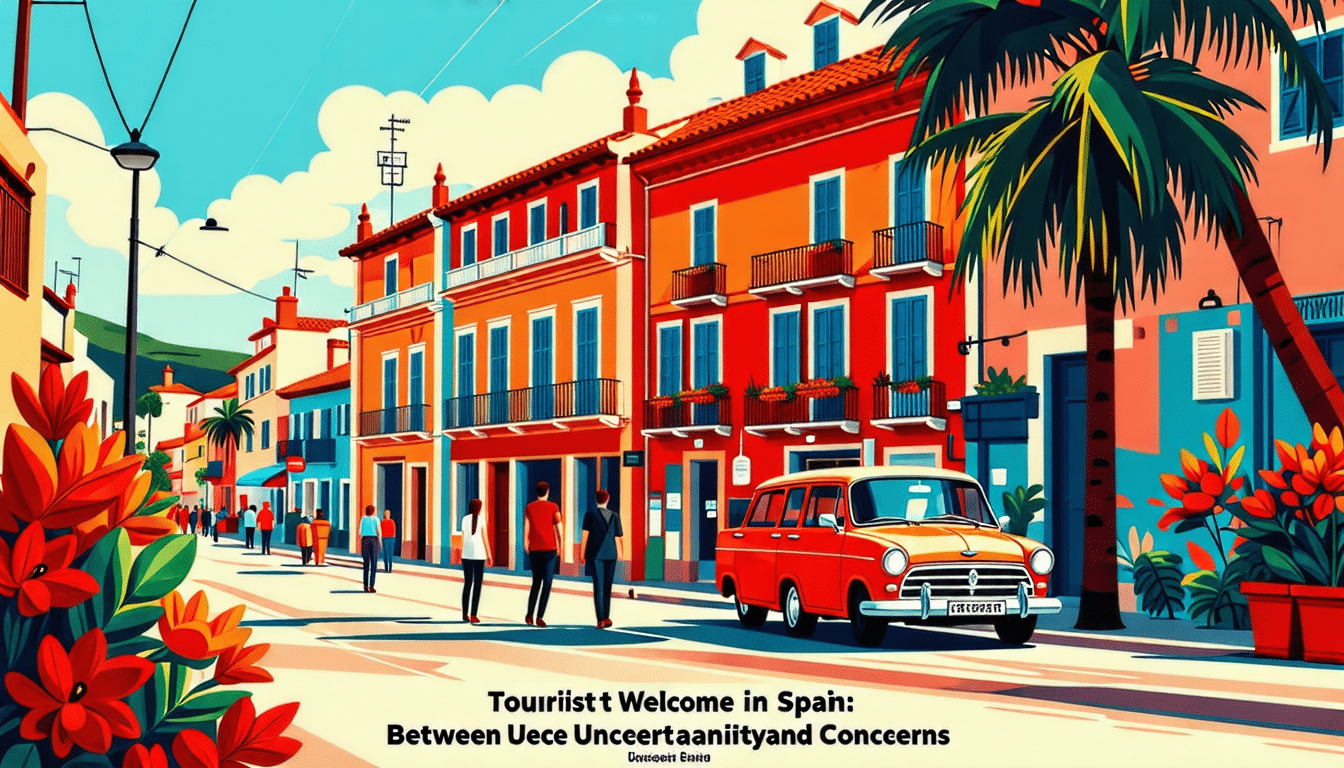This summer, the reception of tourists in Spain is marked by uncertainty and concerns. Between the hope of a saving tourism recovery and the challenges posed by the pandemic, the Iberian country is preparing for a summer season full of twists and turns. Discover the major issues shaping the reception of travelers in Spain during this particular period.
The massive influx of tourists in Spain #
Ah, Spain! Its fine sandy beaches, its generous sun, its delicious tapas… All this attracts crowds every summer. This season, Spain expects to receive a new wave of visitors. But behind these idyllic images lies a much more complex reality. In 2023, the country welcomed no less than 85 million tourists, an impressive figure which, for some Spaniards, is starting to weigh.
The Barcelona protests: a warning signal #
This weekend in Barcelona, the slogans were unequivocal: “ Barcelona is not Disneyland “, ” Tourists, go home “. Nearly 3,000 residents marched on the Ramblas to express their fed up with the tourist influx. This massive mobilization, generated by around a hundred neighborhood associations, is not an isolated case. Other large Spanish cities such as Palma de Mallorca and Alicante are also seeing anger brew.
A snowball effect on the real estate market #
The real problem often lies in the real estate speculation generated by rental platforms like Airbnb. Rents are skyrocketing, making life increasingly difficult for local residents. In Barcelona, for example, rents increased by 17.8%, and in the Canary Islands the increase reached 13.6%. With 4% of the rental stock already occupied by tourist accommodation, finding a place to stay is becoming a real headache for Spaniards.
The tourism sector: asset or burden? #
It is undeniable that tourism is a pillar of the Spanish economy, representing 12.8% of GDP and 12.6% of jobs. However, this economic windfall has a downside. Daniel Pardo, member of the neighborhood assembly for tourism reduction, emphasizes: “Housing owners have a speculative activity to the detriment of lives, people, and the city.” This tension between economic development and residents’ quality of life raises important questions about the sustainability of the current model.
Actions underway to regulate the sector #
Faced with this worrying situation, the Spanish government is preparing a law to limit tourist accommodation. Isabelle Rodriguez, Minister of Housing, recently declared: “ If this affects the right of people to stay and live in the city where they were born, where their parents, their friends, their work are or wherever they wish, we must intervene to prohibit and regulate “. The city of Barcelona promises to put 10,000 housing units back on the market by 2029.
The reaction of the inhabitants: tourist violence? #
Tensions are rising, and some residents no longer hesitate to take action. Remarkable scenes were witnessed, such as protesters attacking tourists with water guns. According to Daniel Pardo, “each of us who live in these neighborhoods suffers to one degree or another from tourist violence.” Gonzalo Fuentes, responsible for the issue of tourism at the Workers’ Commission Union (CCOO), however: “ There is no tourismophobia “. It is rather a concern for housing and a lack of regulation.
À lire the classic and sports car show in the United Kingdom on June 7th and 8th, 2025
The challenges ahead for Spain #
The challenges are numerous and complex. Between an economy that depends heavily on tourism, residents exasperated by the consequences of overtourism, and government initiatives to regulate this sector, the balance is difficult to find. However, it is crucial to take measures that respect both residents and visitors, so that Spain remains a welcoming and enjoyable destination for all.
In the meantime, summer in Spain promises to be hot, and not just because of the weather!


